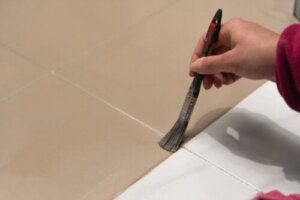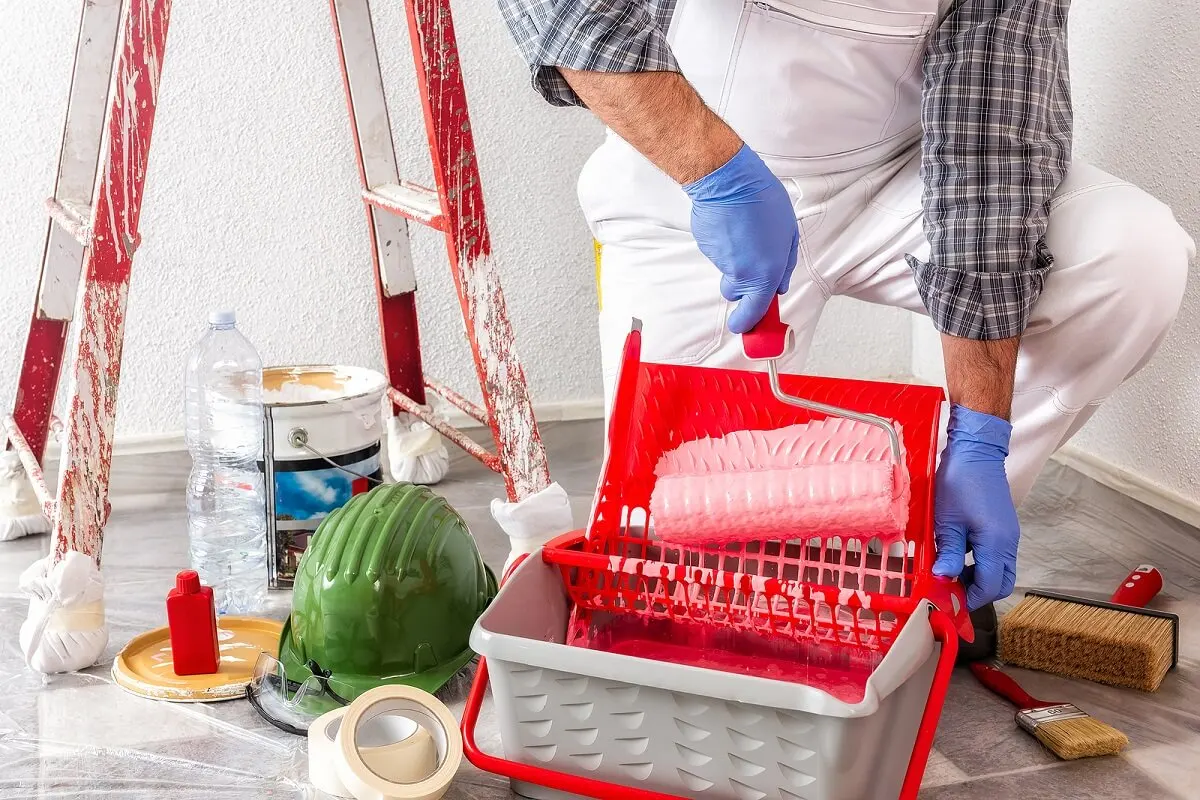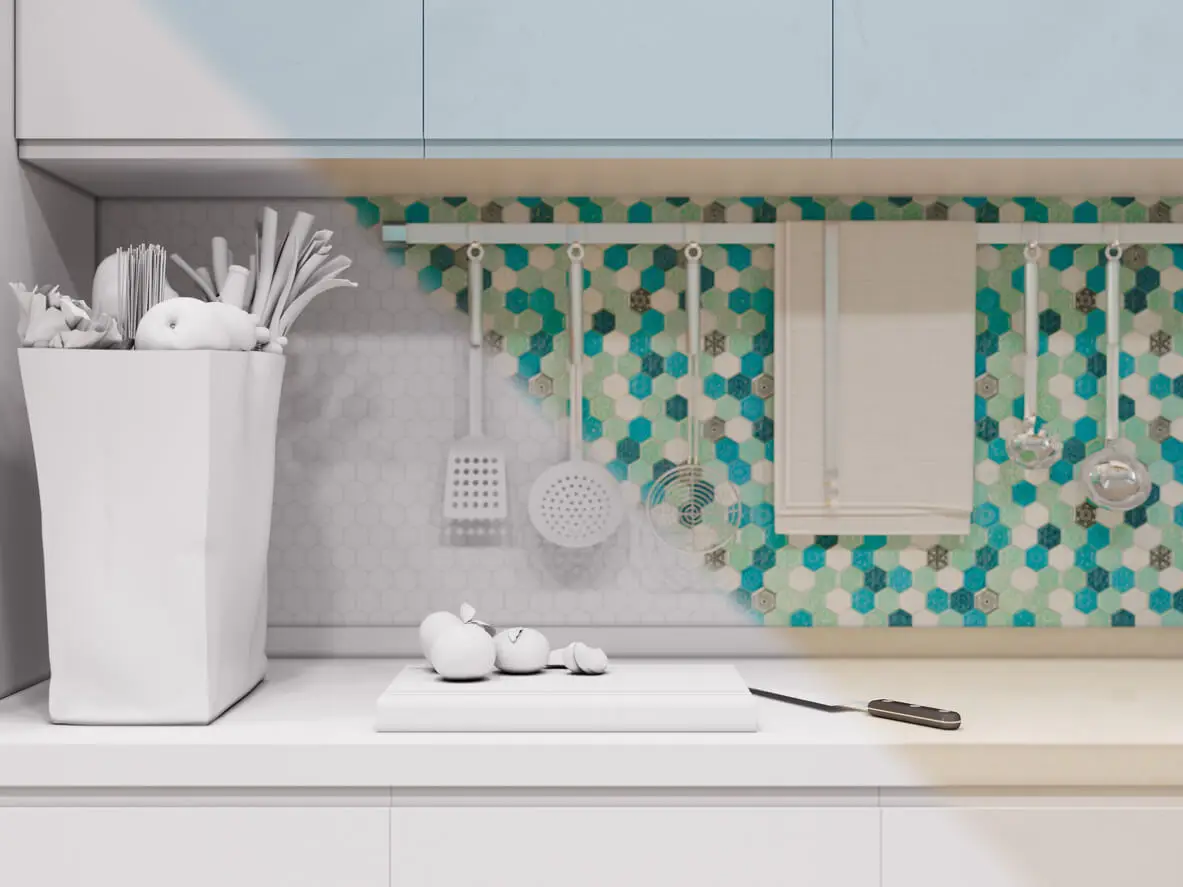7 Common Mistakes When Painting Home Tiles

Renovating the house is something that most of us like to do, but sometimes we don’t have the budget to do it. Fortunately, there are some budget-friendly solutions, even for more complex tasks such as painting the tiles of the home. This may sound like a simple task, but there are some mistakes that are easy to make.
If you’re looking to give a fresh air to your kitchen or bathroom tiles with a professional finish, you should know that there are professional enamels that also add shine. However, this is not all. To achieve a quality result, the technique you apply is also important. Let’s take a closer look.
Mistakes you should avoid when painting tiles in your home
An inexperienced person can paint the tiles of their home successfully, only if he/she doesn’t make the typical mistakes that are almost always irreversible. We’ll list them for you.
1. Common mistake: Not using special tile paint
If you apply satin, rubber, or even oil paint, the tiles will most likely end up ruined to the point of looking worse than they were in the beginning.
Peeling paint and stains will appear in a short time, especially if the tiles are in the bathroom or kitchen of your home. To avoid these mistakes, you should buy a special paint for these coatings. Go to a store and ask for it.
In this way, the paint can adhere to the tiles optimally, regardless of whether it’s a wet place like the bathroom. Moreover, these products are known for repelling water, grease, and dust.
We think you may also enjoy reading this article: Challenge Your Creativity with These 7 Original Ideas to Decorate Bottles
2. Common mistake: Painting without the help of a brush or trowel
A roller speeds up the job of painting. There’s no doubt about it. However, you will need the help of a trowel to make good finishes, since a roller can leave unpainted areas in the joints.
That’s why it’s recommended to start painting with a trowel or brush while paying special attention to the joints and pores. Finish with a roller over the entire area. Do this in a single direction very neatly.

3. Not choosing the right roller
The type of roller will depend on the size and texture of the tiles. If they’re large, keep in mind that you’ll need enough paint to cover them. For this reason, foam rollers are recommended.
On the other hand, wool rollers are useful for those painters who do not have much experience since they absorb more of the substance and make it easier to measure the amount.
4. Not cleaning the surface before painting
Perhaps we do this because we want to see the transformation quickly or simply because we’re lazy, but the truth is that we tend to skip cleaning the surface to be treated.
Keep in mind that dirt, grease, and soap residues that adhere to the tiles make the surface not uniform. As a result, the paint will not adhere optimally, and, on the other hand, it may become lumpy. Cleaning the tiles is a step you should never skip.
5. Start painting without marking the edges
When you finish cleaning the ceramic tile, use a cloth to dry it. At that point, it’s time to mark the work area with the help of a plastic sheet to protect the floor and masking tape for the rest of the edges.
6. Repainting tiles without sanding
If you’ve already painted the tiles and you’re looking to repaint them, you must sand the surface or you risk leaving it lumpy and messy. Remember that the previous paint may be in poor condition. After you clean the tiles, proceed to sand them by hand with the help of sandpaper.
Also, if you consider it necessary, you can also use an electric sander to remove some of the tile’s shine. This way, the products to be applied will be able to set without smearing over time.
7. Common mistakes: Skipping the tile primer
With the tiles already cleaned and sanded, you should apply a coat of fixative. This product can be purchased both in physical stores and online. It’s necessary for the special paint to have a better grip.
The technique to use is to use a trowel to start, applying fixative in the joints. Then, use a small roller to cover the entire area.

Like this article? You may also like to read: Eco-Friendly Decoration: Sustainable Ways To Decorate Your Home
Painting tiles yourself is possible if you avoid these mistakes
What guarantees success when painting home tiles are the right materials and following the manufacturer’s instructions. So, in addition to being guided by our recommendations, you must ensure sufficient drying time between the sealant and painting.
Also, it’s best to pain at room temperature between 15 and 25 degrees Celsius, so if you have heating or boiler, you should turn it off until you finish painting the ceramic. Finally, don’t forget to have a special product or thinner to clean the brushes at the end on hand.
This text is provided for informational purposes only and does not replace consultation with a professional. If in doubt, consult your specialist.








